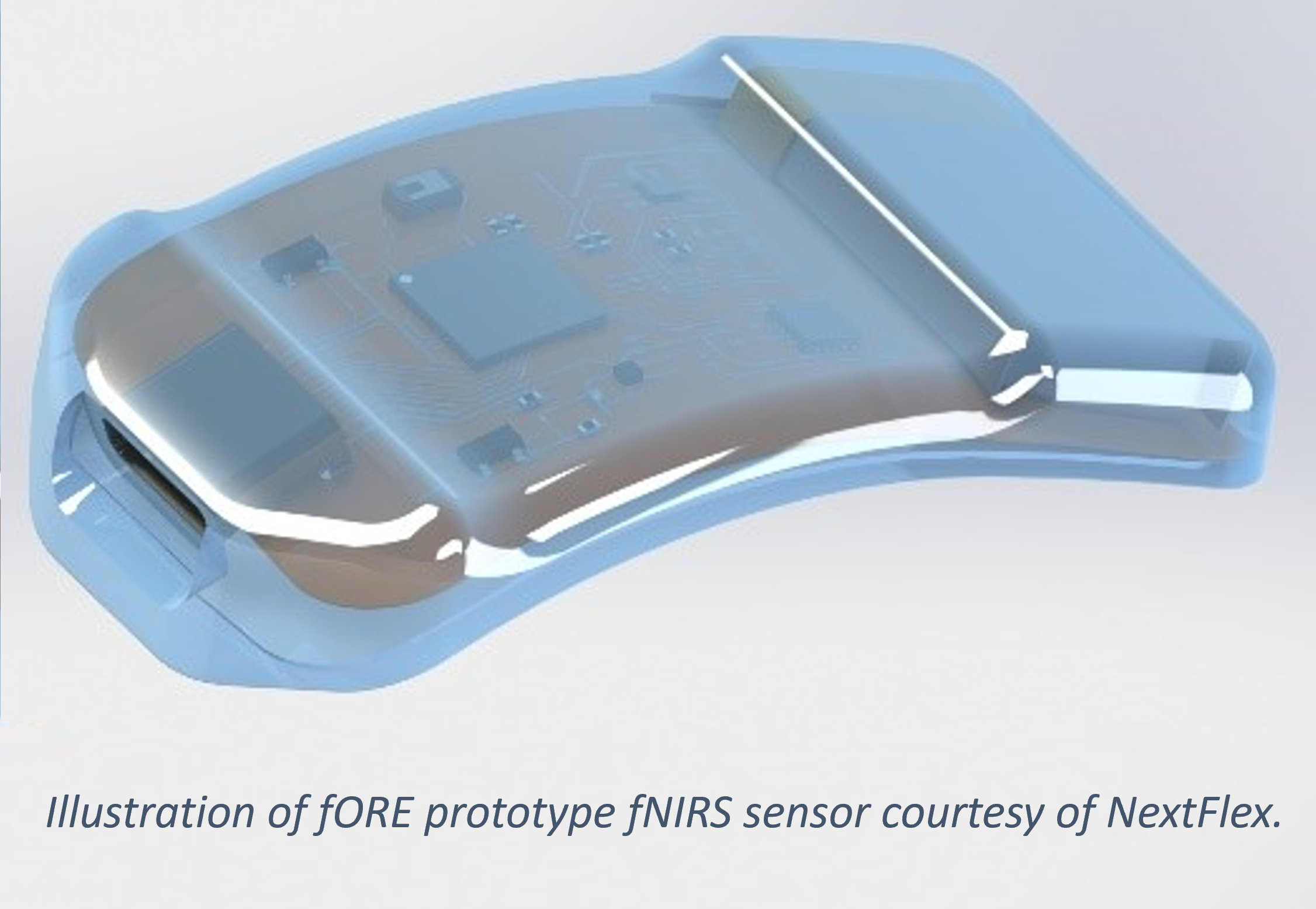WOBURN, Mass., Jan. 14, 2025 (GLOBE NEWSWIRE) -- Aptima Inc., a leader in human-centered engineering, announced today a contract award sponsored by the US Defense Health Agency to further develop “fORE,” a neuro-cognitive monitoring solution for assessing the readiness of pilots and air crew in military aviation.
fORE (fNIRS Operational Readiness Estimation) is a novel solution that uses functional Near-Infrared Spectroscopy (fNIRS) in a highly miniaturized wearable to objectively monitor the neural state of aviators. fNIRS is a non-invasive optical imaging technique that uses near-infrared light to characterize the properties of underlying tissue to assess brain activity.
Warfighters may experience heightened operational risk from cognitive fatigue, stress, or task overload that can compromise performance and mission outcomes. Currently, their only recourse is reliance on subjective ratings (from colleagues or supervisors) or self-reporting; these are very subjective and prone to bias. Alternatively, neural data is considered an ideal objective input for accurately evaluating and quantifying states of human cognition, offering significant promise for assessing warfighter readiness in a timely manner and reducing accidents.
To date, however, no solution exists that can monitor and interpret neural data within challenging military operational environments, such as aircraft flight decks.
The fORE technology suite, developed by the Aptima team under prior STTR contracts with DHA, includes the MAVERIC fNIRS sensor, a super-slim, ruggedized prototype device (see image) that can accurately and unobtrusively collect neural data while worn under flight helmets or other head-worn gear.
“From the MAVERIC sensor and fORE’s analytics, we can derive a range of measures, including heart rate, respiratory rate, and blood oxygen levels that provide information about physiological health and brain cognitive function,” said Dr. Lisa Lucia, Aptima Scientist and fORE Principal Investigator.
“The brain may be receiving inadequate oxygen for different reasons, such as gravity-induced loss of consciousness or hypoxia but, even in the absence of a physiological event, an individual may still be unable to adequately perform tasks due to other factors, such cognitive overload, which fORE also has the ability to monitor.”
Notably, fORE’s analytics account for the challenges of collecting real-time physiological data in live operational environments, correcting for noise caused by things like motion and perspiration. As part of fORE’s analytics pipeline, robust data-derived insights are communicated to users through an intuitive decision-support aid in the aircraft or on the ground.
“The physiological information is communicated to users in a way that allows them to make smart decisions. fORE provides a method for knowing which team is more ready to crew a mission at a particular time, how tasks are going to be allocated among the crew and can recommend interventions when suboptimal states are detected,” said Olivia Fox Cotton, Aptima Scientist and fORE Project Manager.
fORE is expected to be used as a pre-flight planning tool by commanders to determine aircrew readiness, as well as in-flight by pilots and crew to dynamically replan missions.
In this sequential follow-on contract, the Aptima team will update and enhance the components of the fORE system in its transition path to US military pilots, which will include further testing and evaluation by operational users.
While fORE’s development has been focused on operational use, it also has application in aviation training. “The ability to monitor workload fits into the larger puzzle of adaptive training,” added Dr. Lucia.
“An instructor may choose which scenario to use, or how to adapt the scenario in real time based on a trainee’s observed workload level. Optimizing learning opportunities in this way may make learning more enjoyable and lessen the amount of time spent in training.”
Along with Aptima, the fORE team includes:
- Dr. Kurtulus Izzetoglu of Drexel University, an fNIRS expert, whose lab is assisting with device validation
- Makel Engineering, which is adapting the MAVERIC prototype’s design for increased ruggedization and producing test units
- VigiLife, Inc., an Aptima spin-off, which will commercialize fORE as part of its mission to provide industrial health and safety monitoring solutions to commercial markets.
This material is based upon work funded by the Defense Health Agency (DHA) Small Business Innovation Research (SBIR)/Small Business Technology Transfer (STTR) Programs under US Army Medical Research Acquisition Activity (USAMRAA).
Any opinions, findings and conclusions or recommendations expressed in this material are those of the author(s) and do not necessarily reflect the views of the Department of Defense, DHA SBIR/STTR Programs or USAMRAA.
About Aptima, Inc.
For 25 years, Aptima’s mission has been to improve and optimize performance in mission-critical, technology-intensive settings. Visit www.Aptima.com.
A photo accompanying this announcement is available at https://www.globenewswire.com/NewsRoom/AttachmentNg/ab2db1c3-8e93-4f1d-b307-a28527fbfdde

